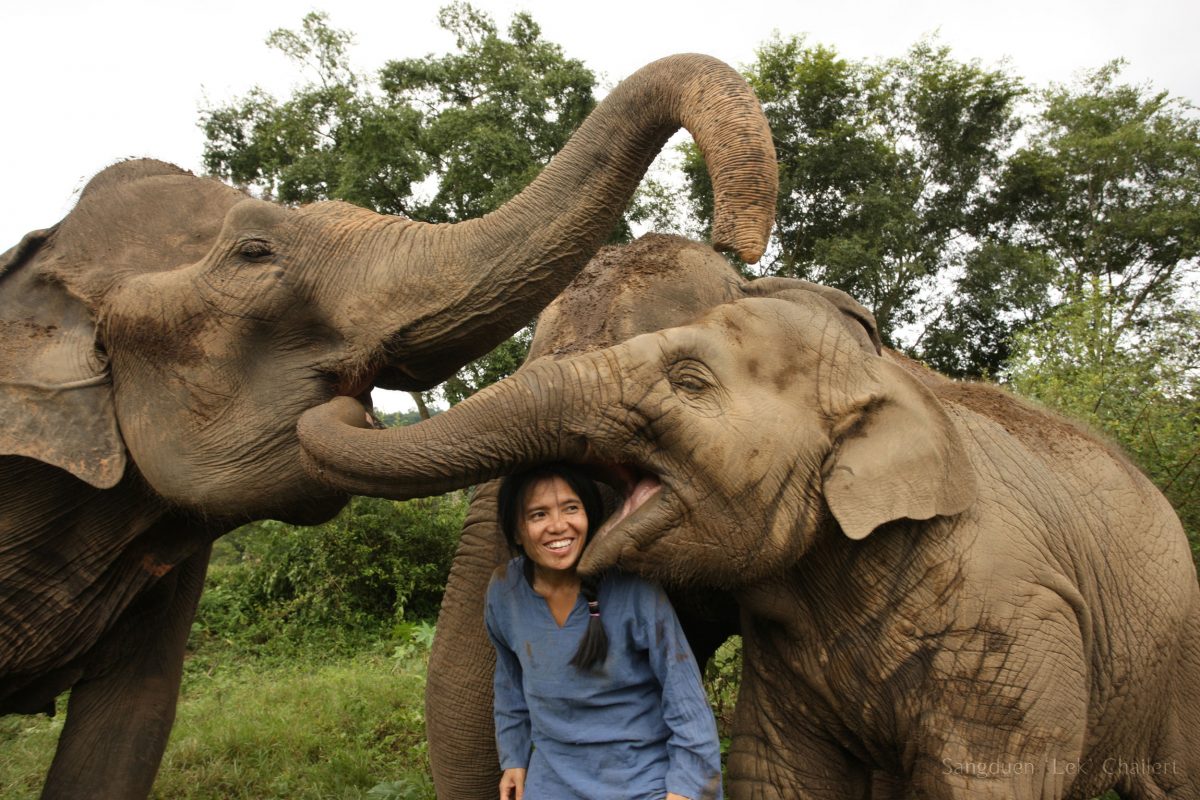
Lek Chailert
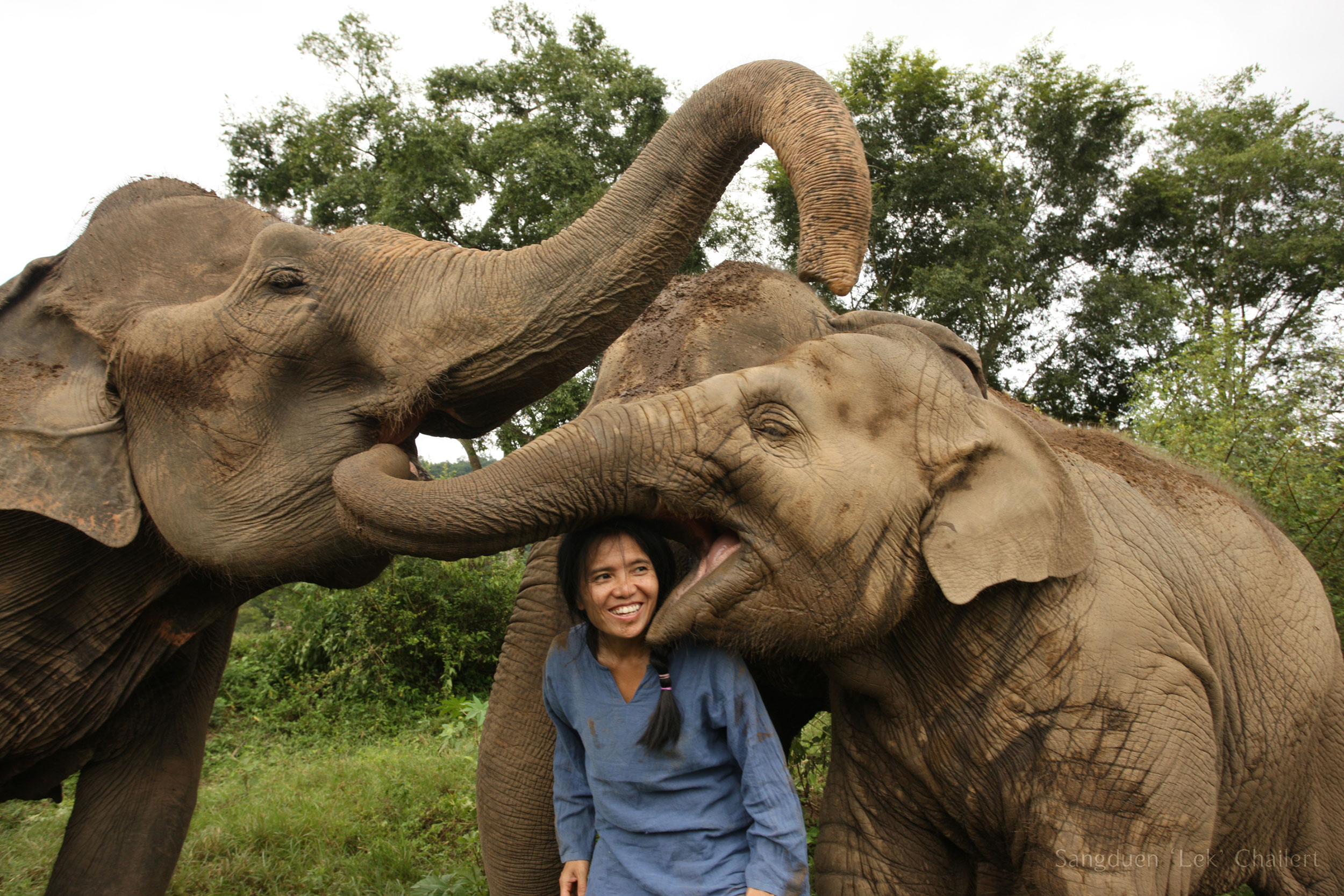
Sangdeaun Lek Chailert was born in 1961 in a small hill tribe village of Baan Lao, two hours north of Chiang Mai, Thailand. During her childhood she spent a lot of time with animals. Her grandfather was a shaman, a traditional healer who not only helped people in his community, but also helped sick and injured animals. Her grandfather allowed Lek to help him, and sometimes let her participate in his healing sessions with animals. She realized that all animals wanted a great quality of life, and she became determined to help save them. She loved elephants, but also wanted to help and provide homes for all types of animals. She is the founder of Elephant Nature Park, a sanctuary that cares for 106 elephants and many other rescued animals.
With love and respect for her country’s national symbol, and the knowledge that they were becoming endangered, Lek began advocating for the rights and welfare of the Asian elephants in Thailand. She is a strong advocate for positive change for domestic and wild Asian elephants, and is internationally recognized. In addition to several documentaries produced by National Geographic, Discovery, Animal Planet and the BBC, Lek has also won many honorary awards. She is also featured in “Love & Bananas”, which documents an elephant rescue and the plight of the Asian elephant in Thailand.
Lek’s mission continues to affect others as her voice is heard throughout the world. Her story and voice have made an impact on all who have given their lives to animal welfare and conservation. Lek’s mission to save the Asian elephants continues to expand. She formed Save Elephant Foundation and has a dedicated team that works tirelessly by her side to protect the Asian elephant.
Secretary of State Hillary Rodham Clinton invited Lek to Washington, DC in 2010 to honor her as one of six Women Heroes of Global Conservation. Lek was named one of Time Magazine’s Heroes of Asia for her work in conservation in 2005 and the Ford Foundation’s “Hero of the Planet” in 2001.
Lek has earned honorary degrees from Rajabhat Chiang Mai University. The National Geographic documentary Vanishing Giants, highlighting Lek’s work with the Asian elephant, was recognized by the Humane Society of the United States with the Genesis Award in 2003.
Today, Lek continues to be at the forefront of elephant, and other animal rights causes, raising international awareness and encouraging other countries in the region to follow her lead, as well as helping to provide sustainable alternatives to local villages. She does all of this while running Elephant Nature Park, where she develops and maintains special relationships with all the animals she rescues. Most days, she can be found at the sanctuary spending time with the rescued herd.
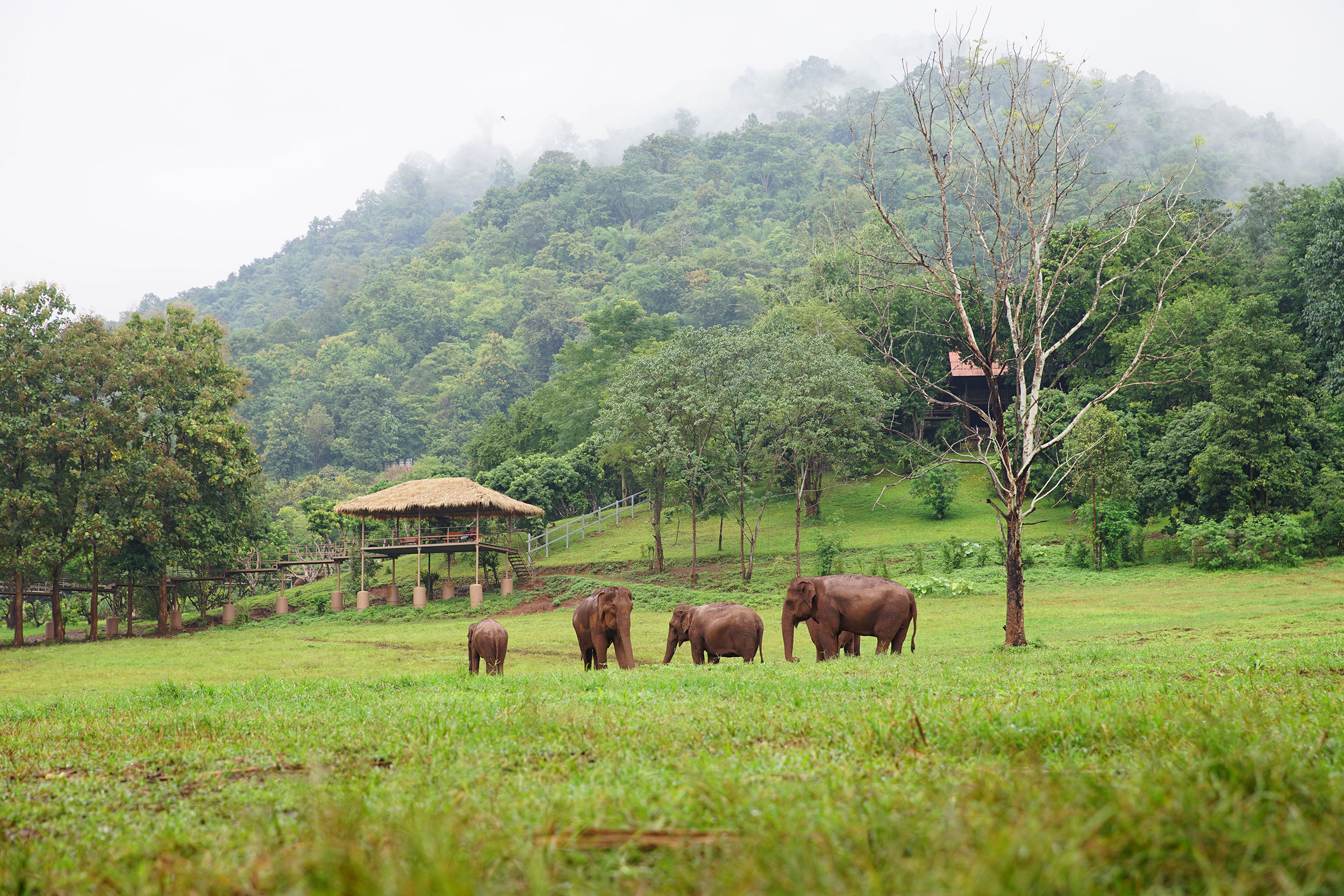

What were your first experiences with elephants? Did you always love them as a child? What made you fall in love with elephants?
I love all kinds of animals. I come from a small tribe in the mountains. In the village where I grew up, elephants would walk by the house all the time. When I was a teenager I went to a very remote area behind the village, and heard screaming from the creek. I asked what was going on and was told that elephants were there for logging. I never saw elephants working for logging before. I asked if I can go have a look, and I was a few meters away from a bull elephant that was constantly screaming. He was pulling this giant log with chains, but I didn’t understand why he was screaming so much. I asked why, but then realized that his head had blood pouring down, because the mahout was using a knife to jab him to force him to work. While the elephant was screaming he kept looking at me. I felt the energy from his eyes and they were haunting me. His eyes were so angry and upset, he was fearful and hopeless. Everything came together and it really touched my heart. I stayed with him about 100 meters as he dragged the timber up the mountain, and prayed that it would go smooth and fast. I wished I could help him. When I went home I couldn’t sleep that night. That eye followed me like a shadow, and I couldn’t get the screams out of my ears and head. This went on for weeks, and months. So I decided to work and get money for medicine for the elephant to treat his cuts and wounds. After I went to visit him I realized that the medicine I bought was not enough. He had infections all over his body. I realized there were a lot of elephants in the area and surrounding villages who were also sick and with infections. The more I walked deeper into the jungle, the more I witnessed the suffering of elephants. So many sick, old and blind elephants forced to work. I asked the owners, “When they can rest?” and they said, “When they fall down and die.” I come from a poor village and had promised my mother I would work for the government, but after witnessing the suffering and cruelty, I told my mother I have a duty and have promised the elephants that I would do anything to protect them. I was so inspired to stand up and fight for them.
While the elephant was screaming he kept looking at me. I felt the energy from his eyes and they were haunting me. His eyes were so angry and upset, he was fearful and hopeless. Everything came together and it really touched my heart.
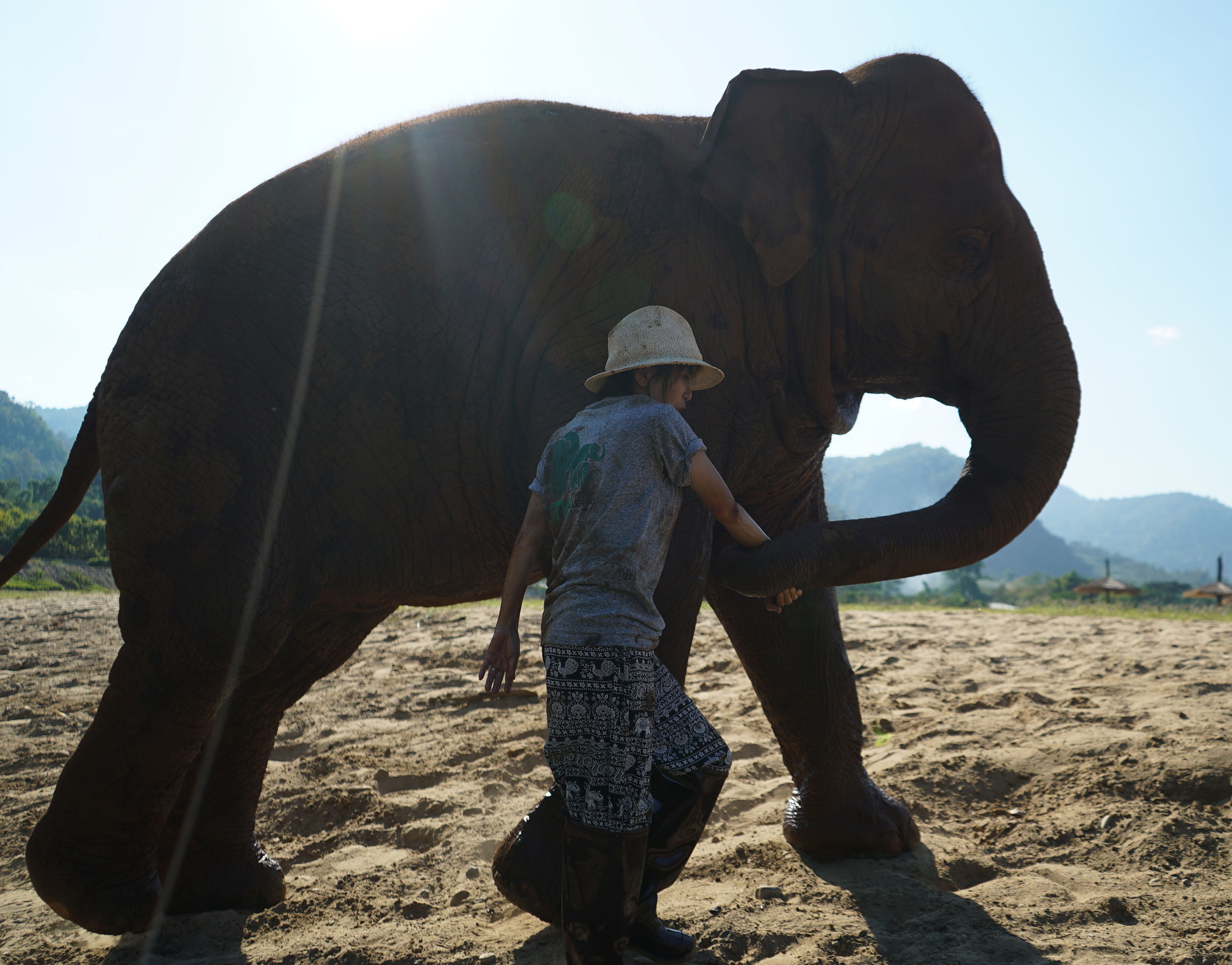

How did you open elephant nature park? What was the process?
I worked after I finished school, long days and hours at many different jobs. One of those was as a tour guide. I wanted to bring the elephants from logging to the tourism industry, because I thought at the time that if they are not in remote areas, and are in public, that they will not be treated as cruelly and will have a better life. But I was totally wrong, the tourists wanted to ride them and see shows. They wanted to go trekking for hours in the mountains, and do many things against the nature of the elephants. For example, many elephants in shows had to stand on their head to support their weight, which caused many injuries. I got fed up. As a tour guide I had no idea that riding was so harmful. The more I saw and witnessed, the more I realized how bad tourism was for the elephants. I had a friend who wanted to open an elephant riding camp. I asked him if he would like to open a sanctuary. He wasn’t very interested but I convinced him, but at the time none spoke about elephant conservation and animal welfare (in the mid 1990’s). People didn’t care much in Thailand. I invested this money, but we lost it. Then he was shot and was in a coma, by a man who viewed him as “competition.” He was in ICU for months and lost an arm, but his family felt the business was too dangerous. I had already rescued nine elephants at that time, so I bought a small area of land to move them to. I tried taking care of them in the jungle but I received warnings from the government. Then one day a man from Austin, Texas, Bert von Roemer, came and donated land that is currently Elephant Nature Park. I moved the nine elephants there in 2003.
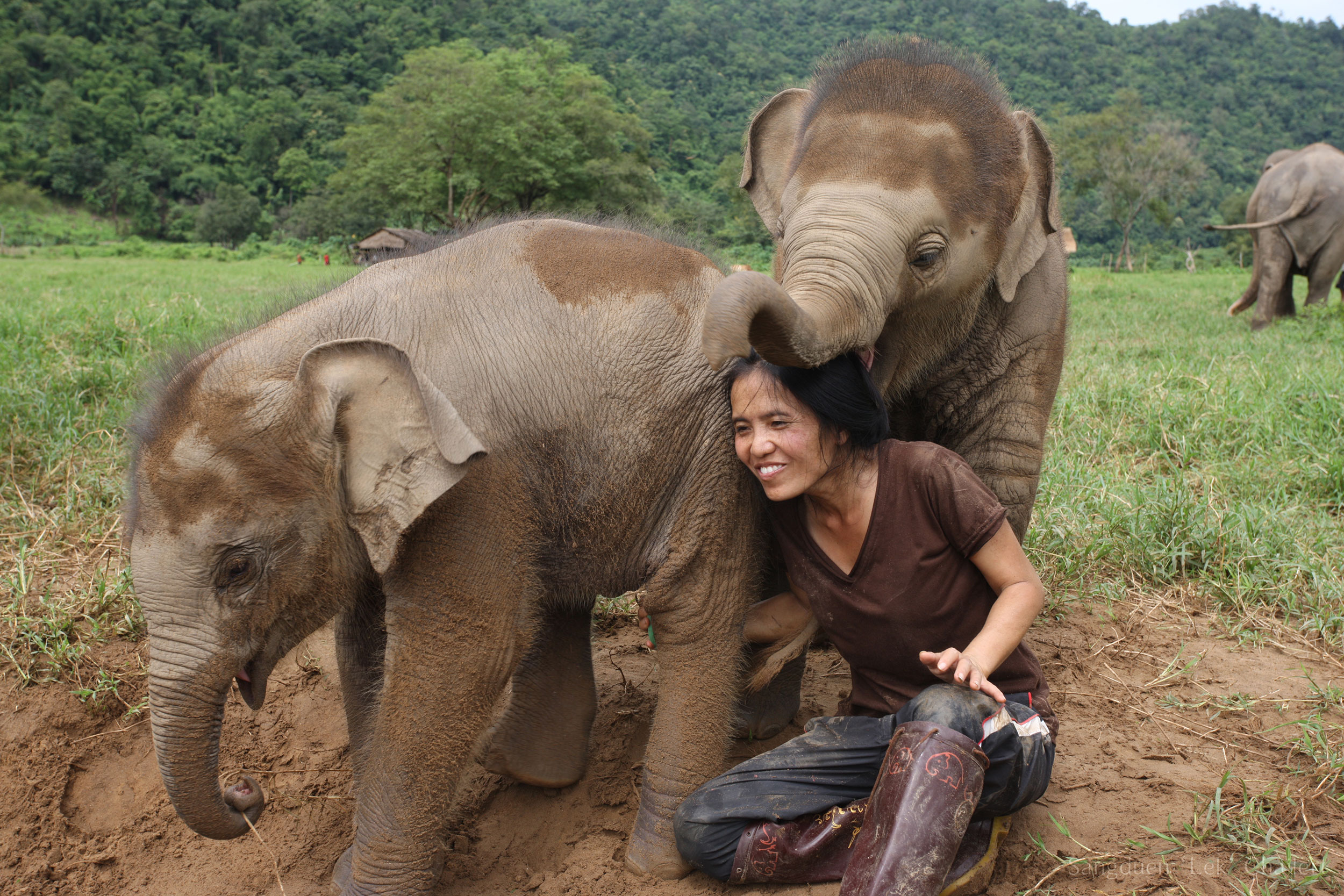
What was your first rescue?
It was Mae Perm. I wasn’t supposed to rescue her because I wanted to rescue the old bull elephant that was getting abused. I asked the owner how much it would cost. He said about 2000 US dollars. I worked hard and saved the money, but when I went back to rescue him he had already died. But I didn’t come back with empty hands, I had the money, and bought Mae an old logging elephant in the next village. We now have 106 elephants in our care.

How does a typical rescue take place? Does someone contact you?
We have many sources of information. Sometimes an elephant lover traveling around notices a suffering elephant. Lately we are contacted about 10 elephants per week.
How long does it take after a rescue for a new elephant to join the herd and do they always accept the new elephants?
The herd always accept the new elephants, but it takes time. The elephants have many injuries when they arrive, many of them mental. So many of the new arrivals are fearful and panic, some of them arrive like zombies and have given up and are severely traumatized. The younger ones are more easily accepted, but the older ones can be more difficult, especially if they have been abused and are not friendly. It is hard sometimes to get the elephants, I have to bargain because some owners want me to pay a lot of money so they can buy a new younger elephant that they will abuse again. They sell them because they are blind and too old, and can’t give rides, just so they can get a new one. They make up stories to get more money as well, so I have to negotiate to get the price down. Sometimes I say “this is not a beautiful elephant” and walk away. I feel bad for saying this, but 70% of the elephants that stay with us are old elephants, and many arrive in terrible condition. Even if they are old and sick we want to give them a better life even if it’s for a short time.
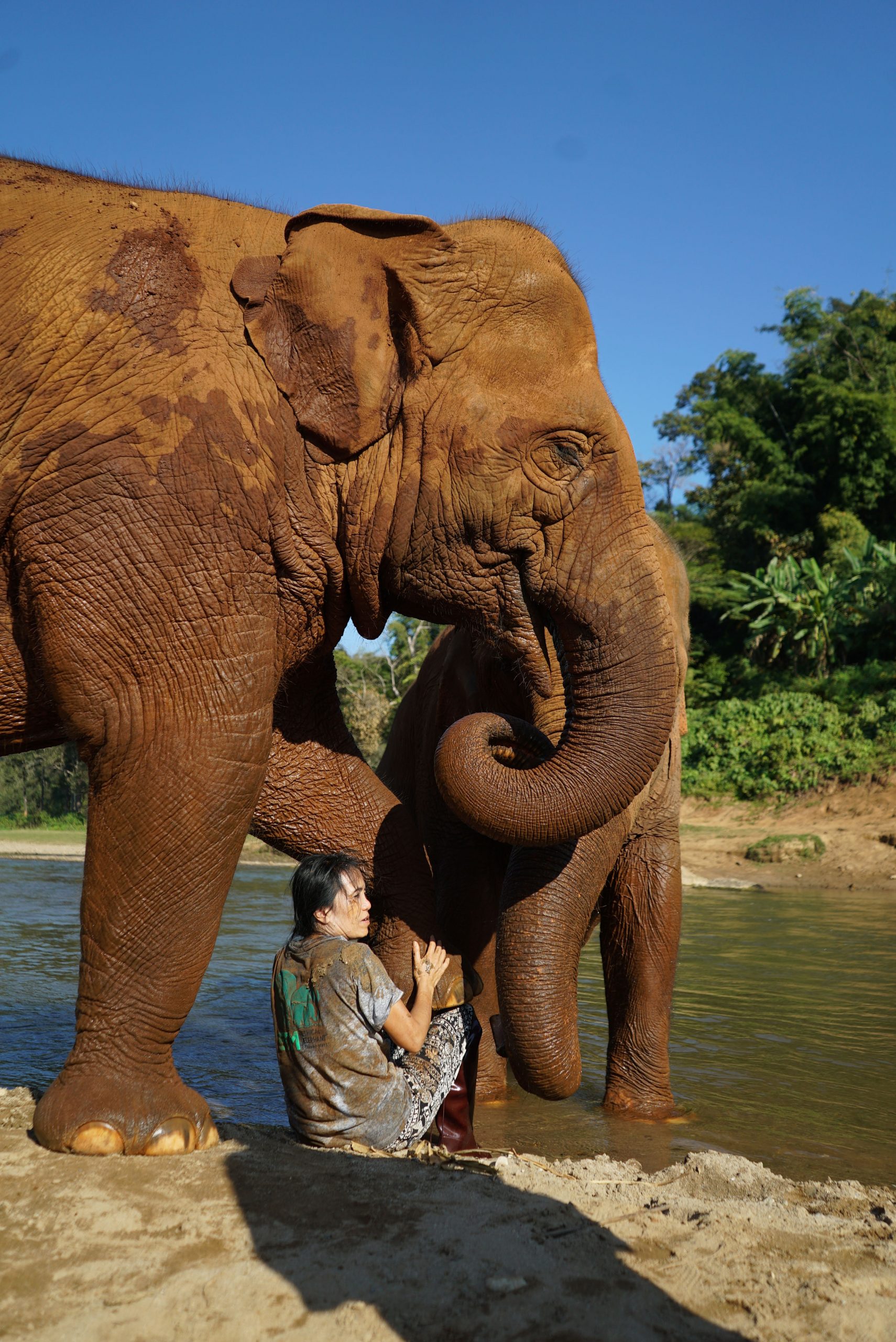

How are elephants viewed in Thailand? Are they respected? Are attitudes changing towards elephants?
Recently more people are traveling with care and doing responsible tourism. Many people have learned about the cruelty behind the scenes, and don’t want to see elephants in the circus or abused. The riding camp owners are starting to see this and realize they have to change to survive. They have to treat them differently and change their business model to be more humane. This is happening much more often. Since COVID-19 started, Save Elephant Foundation has helped over 2,000 elephants throughout Thailand. The oldest camp in Thailand, Maesa, with 78 elephants, changed into an ethical camp with no chains or force being used. After Maesa, Chook Chai with 68 elephants, which was known as the most horrible camp, recently changed but it was very difficult. The elephants there performed at a circus show, which has now stopped.
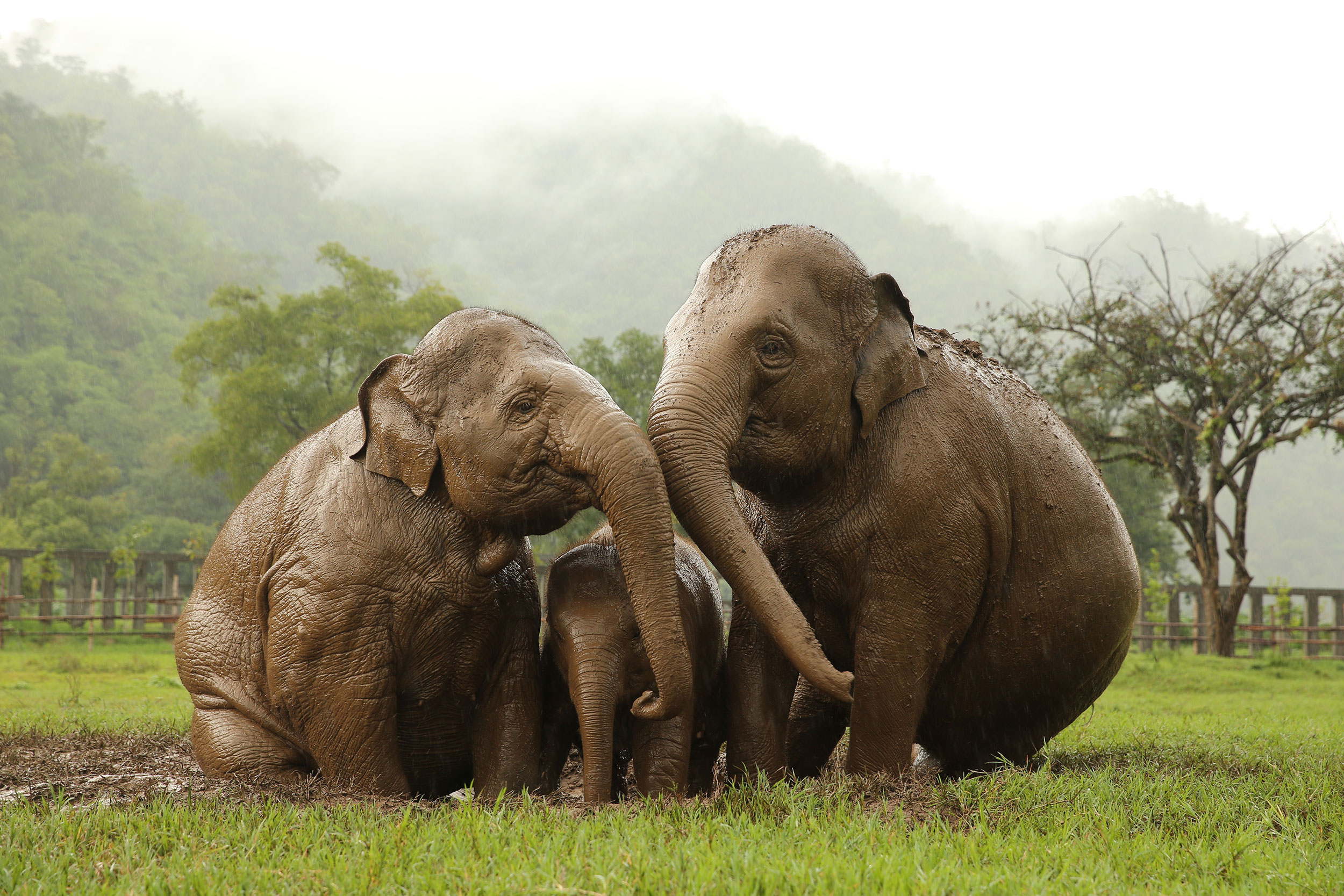
How has COVID-19 affected the park?
Tourism has completely stopped. The elephants are chained 24 hours a day in most camps, because there is no money coming in. We help some of them with food to help support, but it’s very sad.
What are some of your favorite experiences with elephants?
When I rescue an elephant they are like a big family. Each of them is so different, with completely different personalities. It’s like I have 100 children, it’s like a school. Some of them are shy, some are stubborn, some are drama queens, some are jealous. Some argue and fight. It is like a school.
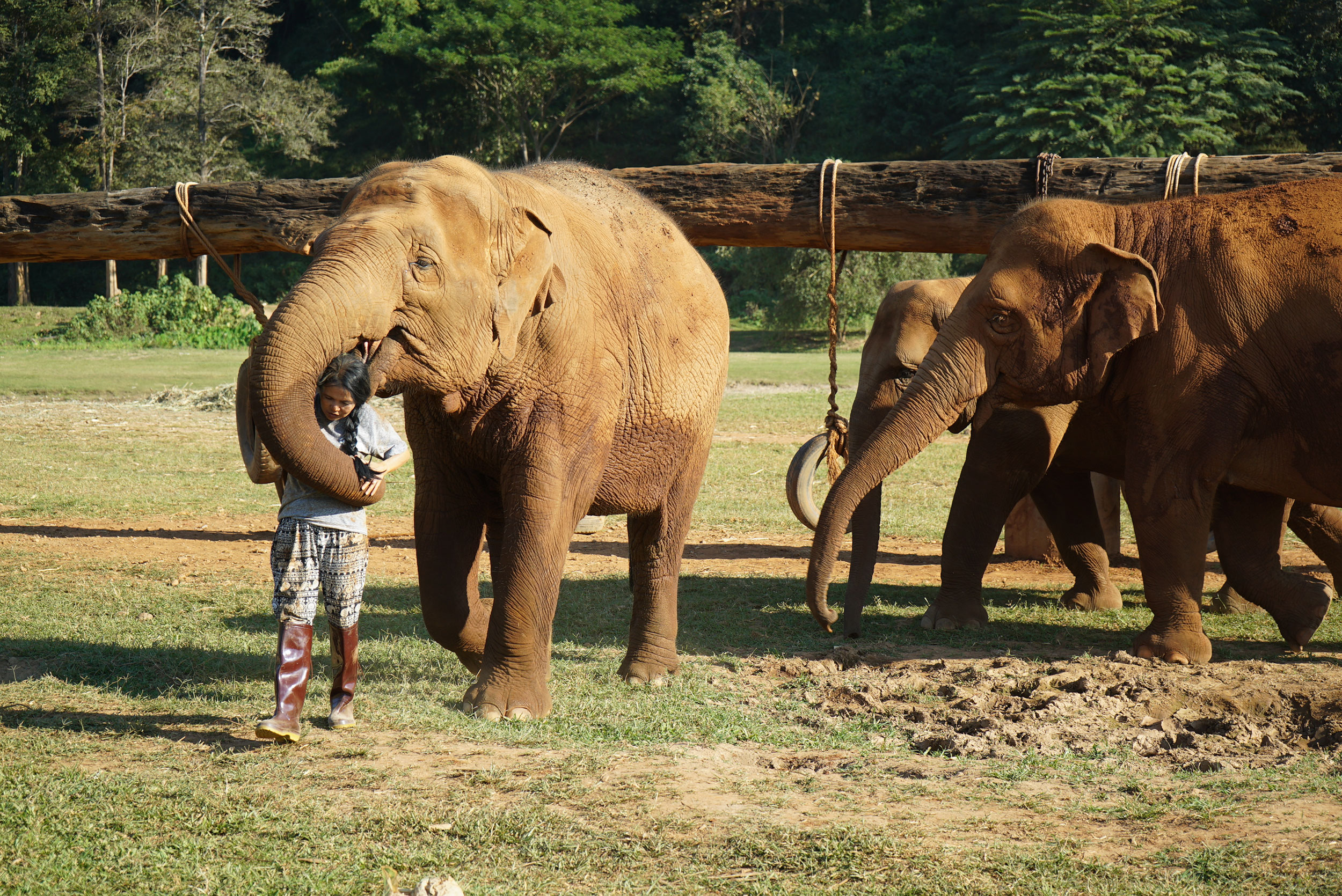

What are the greatest lessons of the elephants? What have they taught you about life?
During the time I stay with them and have been amongst them, I see love. The way that elephants look after each other, and take care of each other, its unconditional love. When an elephant arrives at the park blind, they get adopted by a friend. Their friend really loves them and is dedicated to them. Really taking care of them. When a baby arrives with the mother, we always have an elephant who nominates themselves to be a nanny. They get accepted by the young baby. The nanny’s are so proud and honored to be a second mother, and the way they are taking care of the baby is unbelievable. Humans would never do this. When they love each other, their friendships grow more and more each day. It is really unconditional. I can see how the grandmother doesn’t even sleep so the mother can get some rest. It is the most beautiful thing I have seen, and I am always learning from them. If humans would take this attitude from elephants we would never have war, we would never know the word hate, because elephants do not have war between them. They are also vegan and peaceful. They don’t eat another life. If they pull a branch and there is a bird nest they put the branch back. When I follow them foraging, they are so peaceful and never intrude and always care for the others. That’s why I don’t understand when people abuse them. They are unconditional love.
If humans would take this attitude from elephants we would never have war, we would never know the word hate, because elephants do not have war between them.
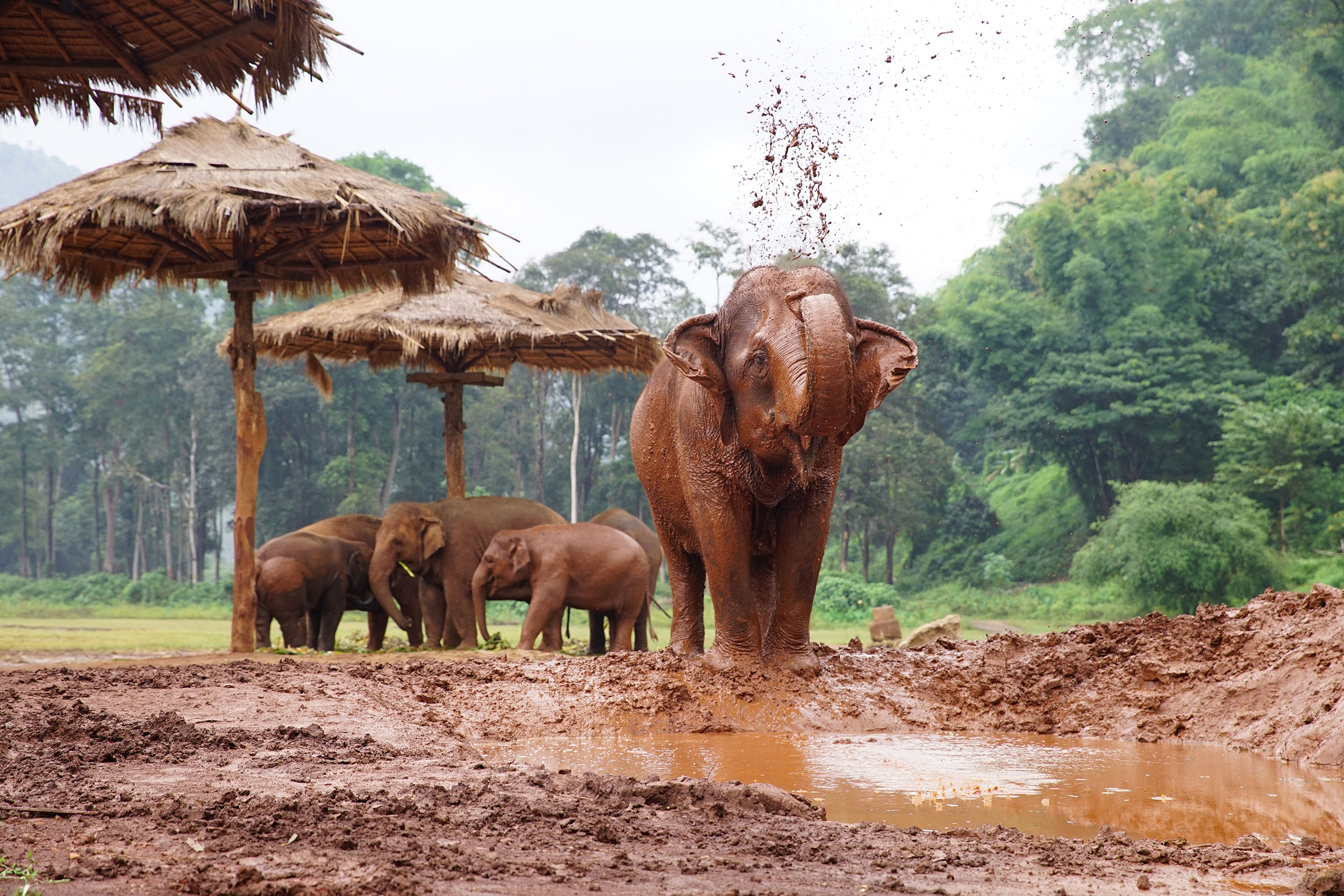
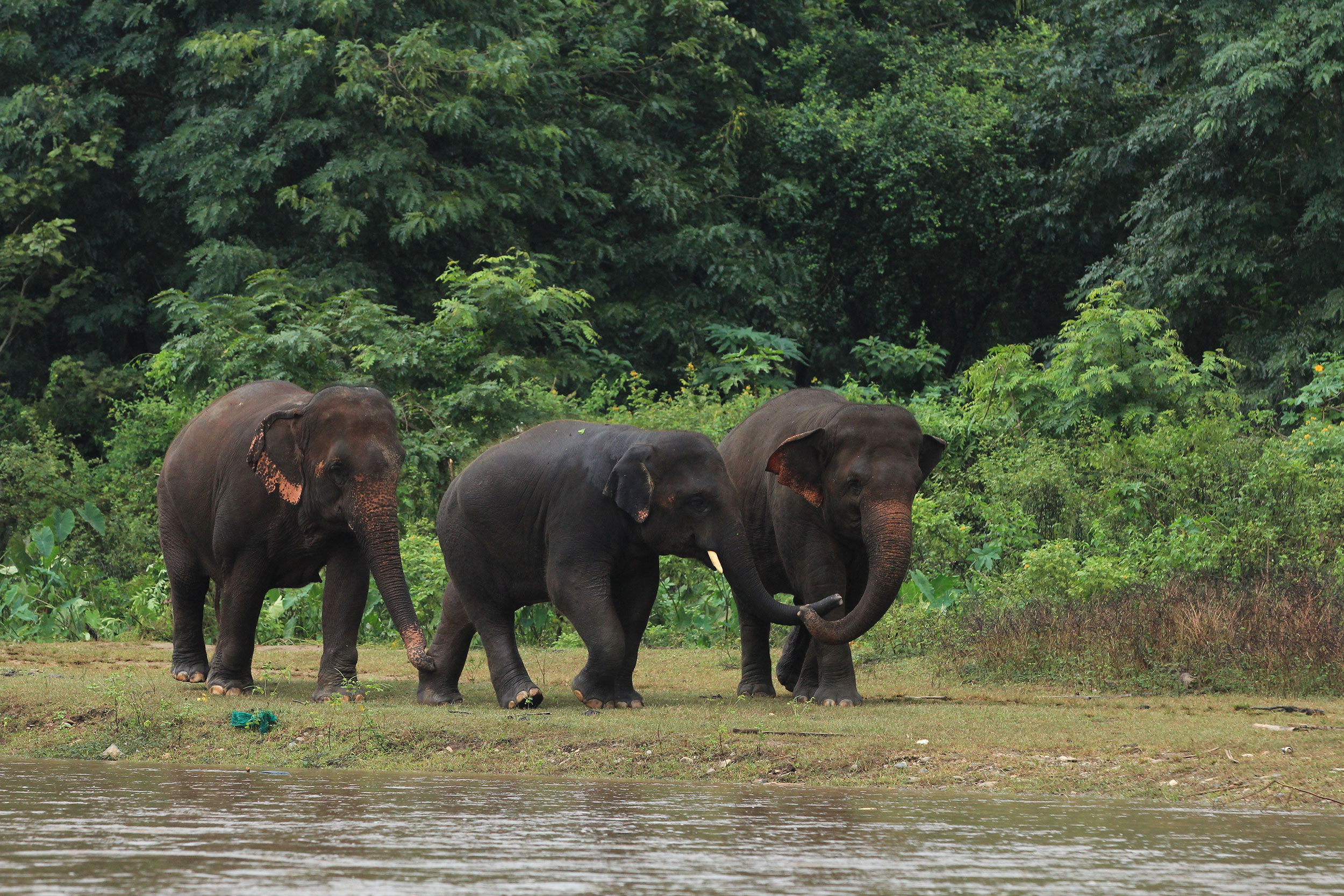
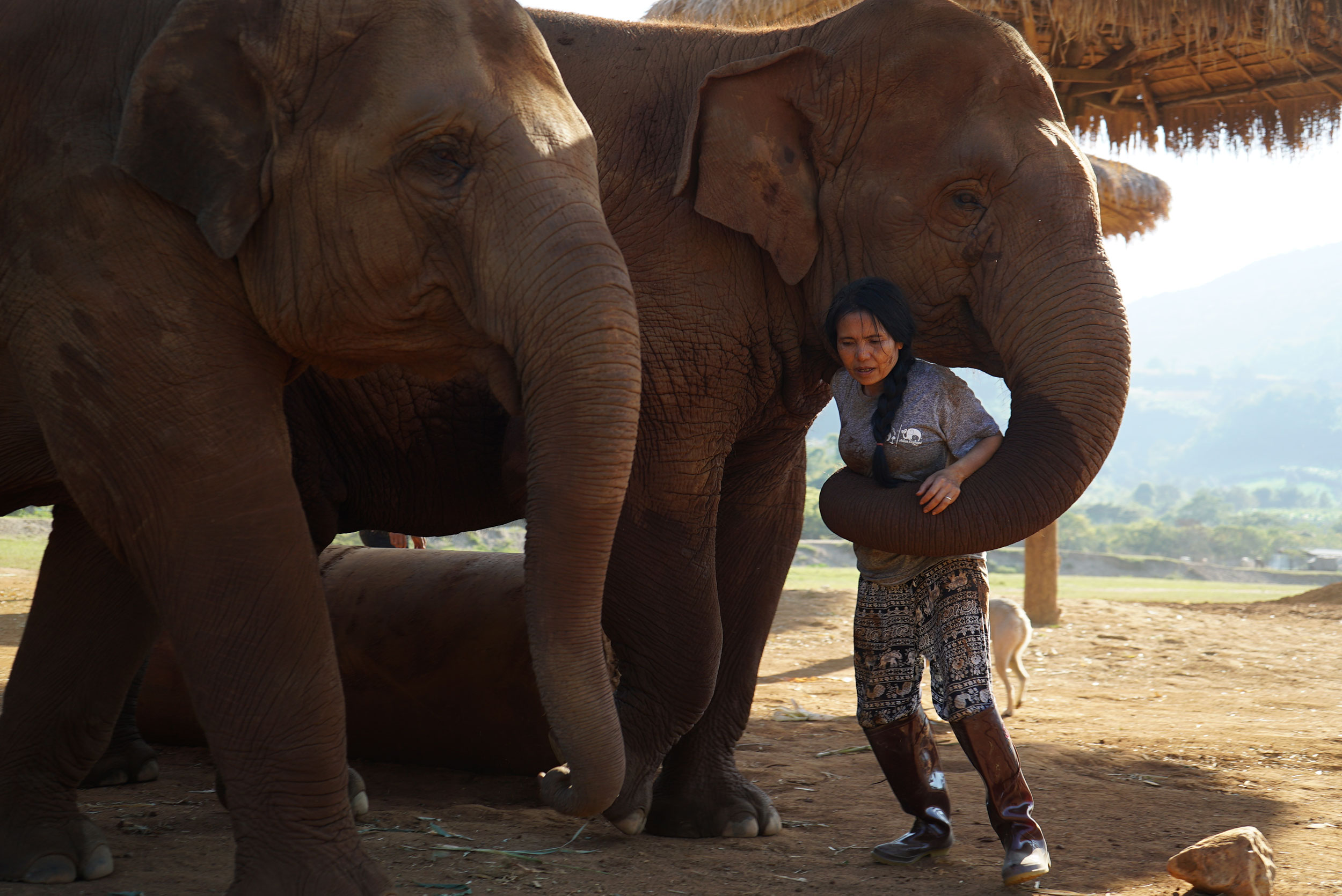
What is the best way people can help support you on your mission?
By donating to Save Elephant Foundation
saveelephant.org

What is your dream for elephants?
My dream is that the elephants in Thailand will no longer work. No elephant should be used for transport or be a slave for people. I want to see elephants protected and no longer betrayed. I dream that one day people will stop hunting elephants, and think of hunting as a sport or game. I dream that one day the elephants will have no financial value for people. I dream that they have dignity on this planet.
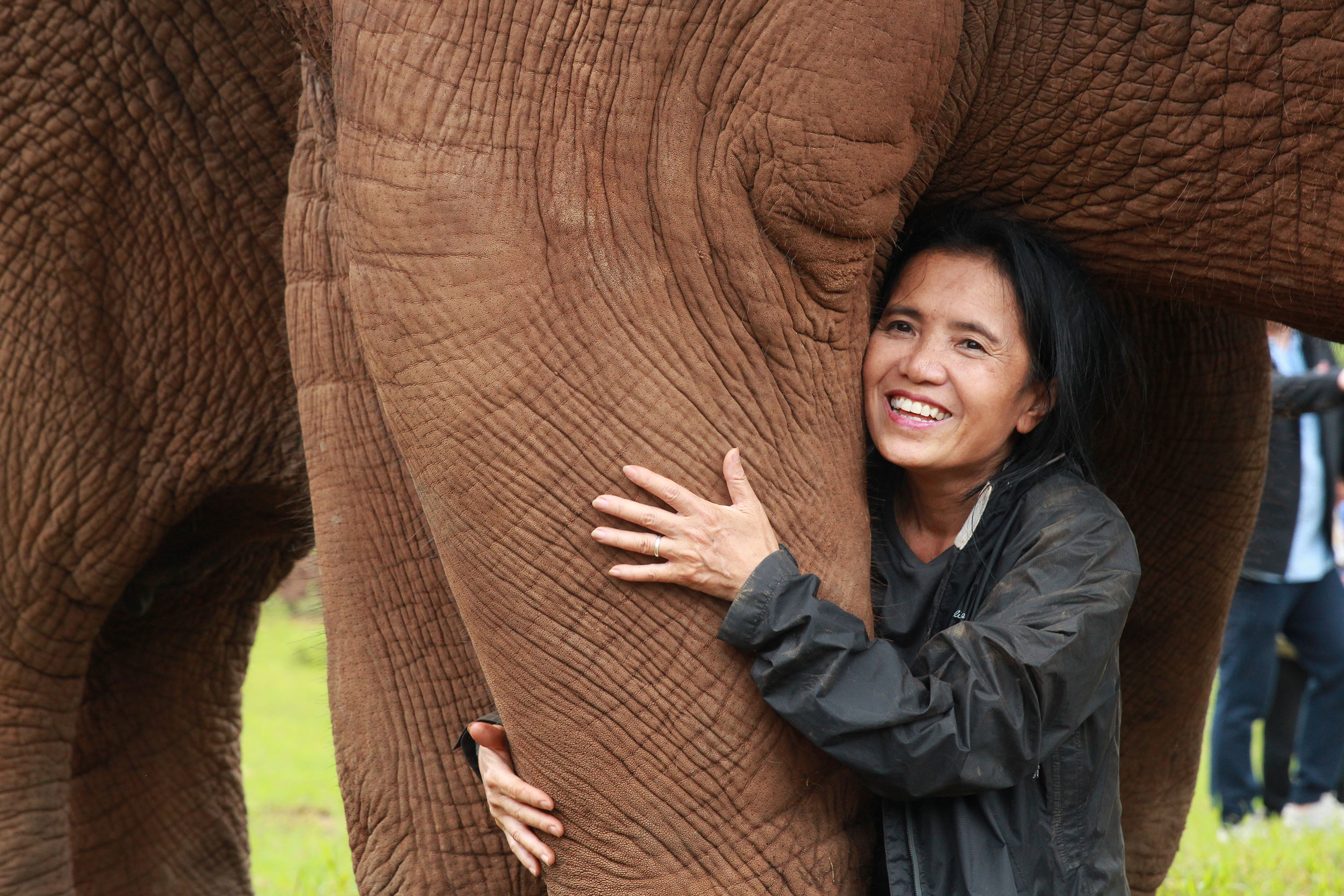

Websites for Lek Chailert:
saveelephant.org | elephantnaturepark.org
Follow her on:

